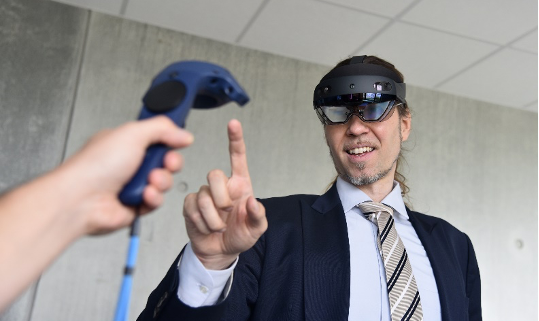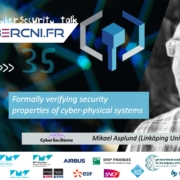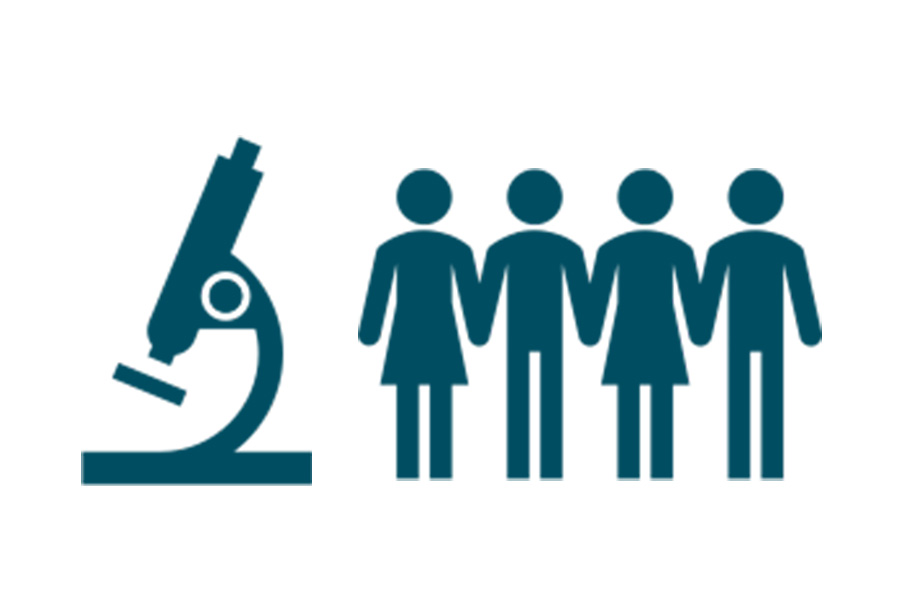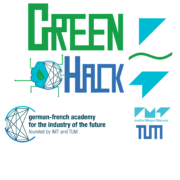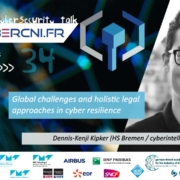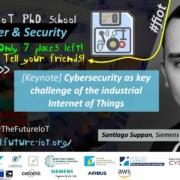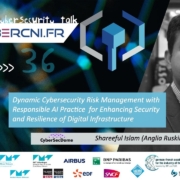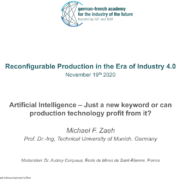Article from Research in Bavaria: New Solutions for the Industry of the Future – Digital Twins and Cybersecurity Strategies for the Modern World of Work
The GFA is honoured to be spotlighted in this wonderful article by Vera Spaett from Research in Bavaria.
Here the part regarding the GFA:
s

A Joint German-French Project Targeting Commercial Success
In 2016, TUM co-founded another long-term project, the German-French Academy for the Industry of the Future (GFA), with the aim of preparing and strengthening industry in France and Germany. The GFA is the result of close cooperation on research, education, and innovation between TUM and the Institut Mines-Télécom (IMT)—the biggest grande école in France, which has campuses across the country.
Since the project started, teams comprised of German and French researchers have collaborated on over 27 research projects, jointly supporting the education of students and doctoral candidates.
“The GFA is a vibrant forum for exchange and international understanding. A whole host of motivated people are putting a lot of energy into strengthening German-French research cooperation,” says Professor Marc-Oliver Pahl, holder of the Chair of Cybersecurity for Critical Networked Infrastructures at IMT. He knows both university partners in the GFA well, having worked at TUM from 2008 to 2019 before accepting a professorship with IMT Atlantique in France.
Graduate Opportunities with the GFA
The GFA’s mission is to strengthen the life-long learning of international students and doctoral candidates, as well as working professionals, around the changes underway in the world of work and the digitalization of the economy. As part of German-French collaboration, the GFA co-organizes PhD schools as well as workshops and hackathons for international students, doctoral candidates, and other researchers in conjunction with industry partners.
Pahl is a member of the GFA steering committee and provides advice on future educational activities at the GFA. He has been teaching students and engaging with digital learning formats for many years, having played a pioneering role in the field of eLearning. The GFA therefore offers free digital learning formats, such as MOOCs, on topics such as the future of work.

The TRUE-VIEW Project: Enhanced Cybersecurity Through the Metaverse
Another way of connecting with the GFA is by engaging with its research projects. With computer systems becoming increasingly ubiquitous, data is increasingly collected and processed sometimes without us even realizing. In a recent project called TRUE-VIEW, Pahl and his team explored how the metaverse could be used to raise awareness about invisible data collection and processing.
In the metaverse, users wear headsets to enter collaborative virtual worlds. As part of this work, the team developed several extended reality (XR) interfaces with virtual and augmented reality (VR, AR) as proofs of concept. The scientists created scenarios that provided a virtual representation of Wi-Fi signals at the TUM Department of Informatics, as well as of data processing in factory automation systems and ambient data processing in classrooms, all using 3D headsets.
GFA Seed Funding a Pathway to Career Success
The TRUE-VIEW project led to Pahl’s involvement in the joint Horizon Europe “CyberSecDome” project, which includes 13 partners including TUM and IMT and over €6 million in funding. The GFA also awards seed funding to promising high-risk project ideas to support the preparation of applications for more extensive grants, such as those awarded by the EU and gained by Pahl. Its research topics include Cybersecurity, Artificial Intelligence, Advanced Manufacturing, and Network Systems. Over 35 large and medium-sized companies from Germany and France work with the GFA. “It’s wonderful to see so many industrial and academic entities wanting to partner with us. Nothing could illustrate the GFA’s success better,” says Pahl.
Please find the full article here: https://www.research-in-bavaria.de/industry-of-the-future

